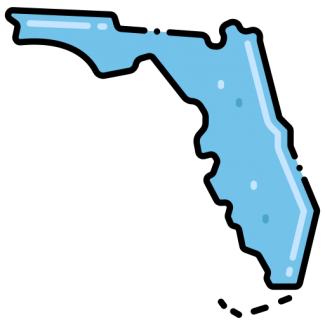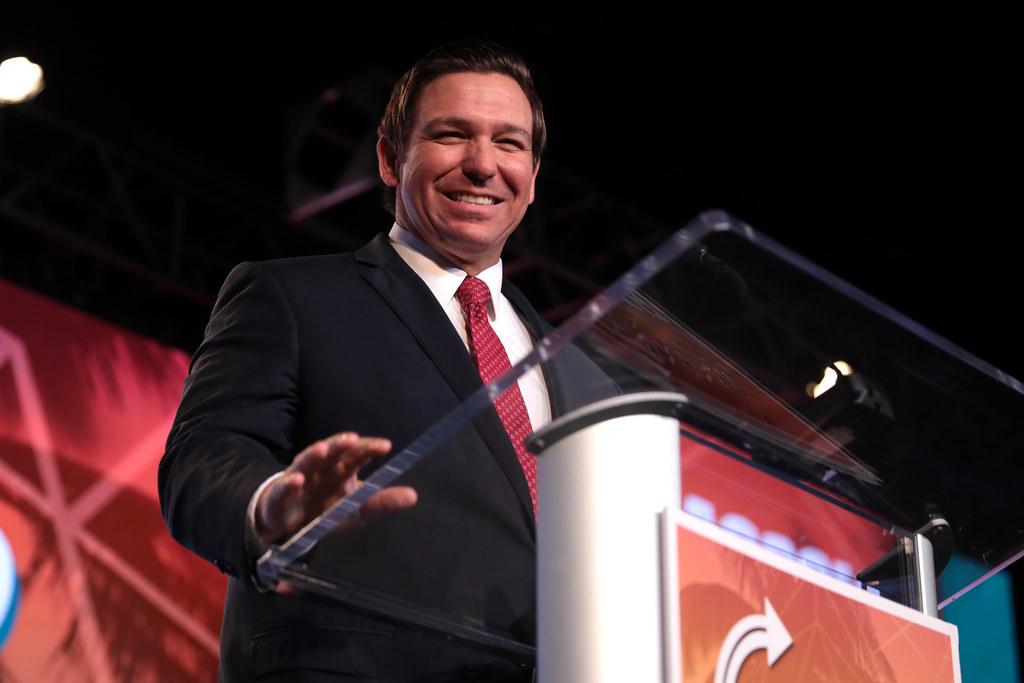Long considered a partisan issue, the viability of safe and secure medical marijuana is picking up steam among many Republicans who were at one time against any form of legal marijuana. One such politician is Florida Governor Ron DeSantis who, after taking office January 8, 2019, quickly stepped across party lines to embrace the will of the voters on this issue.
While DeSantis’ stance has taken voters by surprise, it’s no surprise that the governor is now one of the most popular in the nation. After conducting a recent poll, Pulse Opinion Research reported that 64 percent of Florida voters approve of the job DeSantis is doing as governor.
"Support for DeSantis is broad across nearly all political and demographic groups," the poll also reports. "DeSantis’ high marks, along with a net approval of 30 points, would place him among the most popular governors in America per Morning Consult quarterly governor ratings."
The overwhelming reason voters in the state give for their support is De Santis’ decisiveness in tackling difficult partisan issues right out of the gate.
Many lawmakers are happy to see DeSantis reaching across the aisle. Hillsborough County Democratic Party Chairwoman, Ione Townsend, said that we finally have “someone in the governors' mansion where science has a role to play in issues like cleaner air quality, cleaning our beaches, understanding the effects of climate change in Florida — that's a big deal."
Ending the Bud Ban
DeSantis walked into a veritable hornets' nest of problems with the state’s medical-marijuana program. There were lawsuits filed by former governor Rick Scott and the private sector to contend with. Outside complaints ranged from an attempt to reverse the ban on smokable forms of marijuana to the sluggish pace of the rollout to challenges to the program’s constitutionality. From the start, DeSantis expressed that he was unwilling to continue some of the court battles.
The battle for bud was the first fight to end in defeat for those who supported the smokables ban. Shortly after the ban was declared unconstitutional by a state court, former Gov. Scott’s team appealed the ruling. That’s where the issue stood when DeSantis took office.
It took many Floridians and medical marijuana advocates nationwide by surprise when DeSantis announced that he sided with the judge on the matter and that he expected state lawmakers to reverse the ban themselves while threatening to simply drop the lawsuit if no action was taken.
Following his first Cabinet meeting, DeSantis pointed to the fact that the 2016 constitutional amendment was approved by 71.3 percent of Florida voters, and stated that he believed the Legislature’s ban on smokables “ran afoul” of voters’ intent.
Backing that up, DeSantis’ communications director, Helen Ferre, stated in an email, “Voters overwhelmingly supported medical marijuana as a means to alleviate the pain of those who are suffering. These settlements help move the process forward and will increase patient access as approved by their doctors.”
Ben Pollara, a plaintiff in the smoking-ban lawsuit, told reporters, “Actions speak louder than words but what they’re saying so far seems to indicate that they’re willing to move away from the obstructionist position of the Scott administration and move toward fulfilling the will of more than 71 percent of Floridians and hopefully doing the right thing to implement the amendment.”
DeSantis’ wish came true in April of 2019 when lawmakers signed off an amendment to the law which effectively ended the bud ban.
Picking Up the Pace
Another hot potato dropped on DeSantis’ lap was the sluggish rollout and slow response of state agencies in acting on patient applications for medical marijuana cards. DeSantis has publicly expressed frustration with delays.
When DeSantis came to office, The Office of Compassionate Use, the division of the Department of Health tasked with managing the state’s medical marijuana program, was under fire from lawmakers, patients, and industry stakeholders alike for dragging its feet in crafting regulations related to the marijuana industry. In the early going, patients waited sometimes for months before being cleared by the state to purchase marijuana products.
Lt. Gov. Nuñez speaking of the incoming governor’s stance on the issue stated, “In our discussions, in our involvement in transition, I think he has noted that sort of the slow pace is something that could potentially be a problem. He wants to make sure that that’s addressed,” she said.
Agriculture Commissioner-elect Nikki Fried, a Democrat and former medical-marijuana lobbyist, said she found Nuñez’s comments encouraging while stating that she looked forward to speaking with DeSantis “about how we can correctly implement the Constitution as approved by 71 percent of Floridians.”
“If DeSantis is serious about moving patient access forward, I welcome that wholeheartedly and would love to work with him in any way to get sick and suffering residents of our state the medicine they need,” Fried said in a statement.
A Major Overhaul?
Making the bud ban and slow rollout issues look like child's play was the looming lawsuit the outcome of which could drastically remodel the landscape of the Florida marijuana industry.
A legal challenge filed by the Tampa-based firm Florigrown, whose owners include well-known strip-club owner Joe Redner, resulted in Leon County Circuit Judge Charles Dodson striking down the law. The plaintiffs argued that the legislature overstepped its bounds when drafting the laws required to implement the constitutional amendment. Dodson ruled that vertical integration and other requirements put in place by lawmakers did, indeed, conflict with the constitutional amendment.
Shortly after taking office, on Jan. 17, DeSantis expressed his concern over the fact that the law only allowed for a limited number of producer licenses and that these companies were required to be “vertically integrated” — that is to handle the entire process from growing plants to producing end products, to distributing and selling those products from start to finish. DeSantis went as far as to say that the Scott administration had essentially “created a cartel.”
But legislative leaders seem to be not so keen on the idea of doing away with vertical integration. Some claim that such a drastic change could destabilize the industry.
DeSantis appears to be softening on this matter and recently stated that he backs lawmakers who are continuing to fight the ruling. “I have said the way the legislature did it was not exactly consistent with a competitive market," DeSantis said, adding. However, says DeSantis, from a constitutional perspective, “I think they had the right to set those standards, and I know that a lot of people have relied on that licensing regime."
Although DeSantis has relaxed his position toward vertical integration he continues to express an interest in tweaking the 2017 law. His administration recently agreed to award eight new medical marijuana licenses to applicants that lost out on the first round of licensing in 2015 increasing the number of medical marijuana operators in Florida from 14 to 22.
We can expect to see quite a bit more jockeying for position on this and other issues on the part of advocates, industry stakeholders, and politicians in the coming years. One of the biggest changes coming down the pike is the prospect of full legalization of the recreational use of marijuana, which is said to be supported by two-thirds of Florida voters.
























